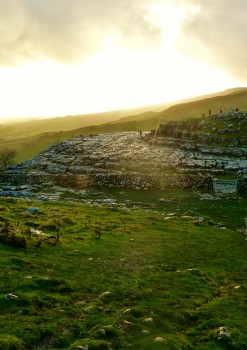Mental Health Stigma: what it means to you. 25 September
So we know the figures: 1 in 4 of us in the UK will experience a difficulty with our mental health in any given year. Yet it remains very difficult to talk about and address our mental health individually or as a society. One study showed that over 70 percent of young people say that the stigma around mental health difficulties has made them less likely to talk with others about their mental health.
It’s clear that many employers are reluctant to employ people with current or historic mental health difficulties. It’s also clear that for all the government speeches about prioritising mental health services, many people find it very difficult to find appropriate treatment and support for even common difficulties such as depression and anxiety, never mind anything more unusual. Those who do look for support in the NHS can find excellent people doing excellent work, but lack of resources often mean long waiting times and limits on the services provided. Sadly, not everyone receives a good deal at the hands of professionals and many people seeking help for mental health difficulties describe experiencing stigma even from health services which are not always structured to meet their particular needs.
This café will offer space to talk about the experience of mental health difficulties ourselves or for family and friends, and any stigma that has been experienced as a result. We shall talk about whether things seem to be improving or worsening. We shall also talk about what might help to reduce stigma, enable people to make use of the services they need, and engage with life around them without discrimination or rejection. We shall talk about what works at the moment and what needs to change in services, society, neighbourhoods and even in ourselves.
Whatever your experience and relation to mental health difficulties, you are welcome to talk and think at Café Psychologique. Our conversation will be introduced by Helen Williams, a clinical psychologist, on Tuesday 25 September at 8.00 pm to 9.45 pm in Seven Arts, Chapel Allerton, Leeds. The Café costs £4 on the door.
There is a poster to download here:
Café Psychologique September 2018
You can read how the Café works here:
Café Psychologique Rules
Room to Breathe in Yorkshire Sculpture Park, 22 September

The next Room to Breathe Walk is Saturday 22 September. There will be chance to think and talk with skilled facilitators, and great company, for our last walk of this year in Yorkshire Sculpture Park. We walk 8 miles, have 90 minutes in structured groups, and spend the day helping each other make progress on the way ahead. There’s more information here.
Stretch your legs, your lungs and your mind in Yorkshire Sculpture Park.
Siblings: how has birth order shaped your life? Café Psychologique 24 July
It’s not hard to see that growing up with brothers and sisters will have an effect on you. Also that not having any makes a difference. However there is a widespread belief that the order you arrive in your family has a significant impact too.
One version of this has it that the eldest child on average will be given more privilege, take more leadership and have more career success. Similar ways of looking see middle children likely to be more focussed on relationships and better as team players, and youngest children as more risk-takers, funny and eager to please.
Ask people themeselves and eldest children often feel they had to take more than their fair share of responsibility, middle children feel their needs are overlooked, and youngest children feel they are not taken seriously.
Then there’s the question of only children: either feasting on their parents’ or caregivers’ exclusive attention, or lonely and excluded with no natural playmates and lacking the opportunity to learn to compete.
Or maybe none of this matters, and genetics and the way you are brought up all have much more effect than the random place you occupy in your family.
Whatever your view, you are welcome to talk and think about the role birth oder plays at Café Psychologique. Our conversation will be introduced by Yvette Fidler, an experienced Café Psychologiste, on Tuesday 24 July, at 8.00 pm to 9.45 pm in Seven Arts, Chapel Allerton, Leeds. The Café costs £4 on the door.
There is a poster to download here:
Café Psychologique July 2018
You can read how the Café works here:
Café Psychologique Rules
Gender! What is it good for? Absolutely nothing! Café Psychologique 26 June
Gender turns out not to be quite as straightforward as some of us thought. An understanding of LGBTQ+ ideas is beginning to challenge many assumptions and practices that have informed and structured much of our life in contemporary Britain. That said, getting your head around all of the issues is far from straightforward too, and even those of us who want to be inclusive can find ourselves confused and nervous of giving offence.
Meanwhile there are still plenty of us who think the issues are perfectly straighforward and might wonder what all the fuss is about.
As usual Café Psychologique will provide an opportunity to think about Gender from a psychological perspective. We shall wonder whether Gender is greater than a binary, and whether our present understandings and concepts of Gender are fit for the realities of our lives and work. We won’t have all the answers but we’ll try to explore and think about these things and more.
Jo Charsley and Tom Matthews are clinical psychologists who work for the NHS Gender Identity Development Service in Leeds, and they will introduce our conversation on Tuesday 22 May, at 8.00 pm to 9.45 pm in Seven Arts, Chapel Allerton, Leeds. The Café costs £4 on the door.
There is a poster to download here:
Café Psychologique June 2018
You can read how the Café works here:
Café Psychologique Rules
Age: what diffference does it make? Café Psychologique, Tuesday 22 May, 8.00 pm
It seems obvious that our age makes a difference in all sorts of ways, but why, and does it always need to? Some of the differences may be simply imposed by our own or others’ assumptions, perhaps about what we might be capable of or what would interest us.
Take the discussion about voting age, for instance. Young people in Scotland now can vote when they are 16, while their peers in the rest of the UK have to wait until they are 18. Fascinatingly, turnout by 16 and 17 years olds in Scotland has been higher than that for 18 to 24 year olds (Electoral Reform Society). It is also notable that the arguments deployed against younger people voting (they aren’t informed enough, are too susceptible to influence, aren’t interested, and so on) are all arguments that were previously used to prevent other groups such as women and servants from voting.
Distinctions also abound in advertising. Judging by marketing as a whole you could easily think that young people are not interested in finances or planning for the future, and that older people have no interest in sex, fashion or adventure holidays.
Many parents exercise themselves about when their children are ‘old enough’ to have a phone, go online, watch particular films, or walk to school. Employers too seem so keen to use age as a way of judging suitability that laws are needed to stop them asking for age, except where it is vital to a job.
With these pressures it wouldn’t be surprising if we limit ourselves too, deciding that certain clothes are to young or old for us, or that certain places or activities or even potential partners aren’t suitable at our age.
Vicky Ola is a regular Café Psychologiste and she will introduce a conversation about age and the responsibilities and privileges associated with different age groups. This café is on Tuesday 22 May, at 8.00 pm to 9.45 pm in Seven Arts, Chapel Allerton, Leeds. The Café costs £4 on the door.
There is a poster to download here:
Café Psychologique May June July 2018
You can read how the Café works here: Café Psychologique Rules
Jazz: The self, the group, society and jazz. Café Psychologique 24 April
Jazz has its roots in African music, coming into being through the African slave communities in the southern states of the USA in the early 19th century. It quickly spread far and wide and now there is barely a country in the world that doesn’t have some kind of jazz scene. For all that it is global it is also a subculture, adored by millions but rejected by many. It clearly divides opinion. As Frank Zappa supposedly put it: ‘Jazz isn’t dead, it just smells funny’. This cafe isn’t just about Jazz as a musical art form and the psychology of how it can provoke such powerfully differing opinions. We shall also look at the role jazz plays in providing a sense of identity and what it can do to put people in touch with themselves and each other.
One of the interesting, and sometimes troubling things about jazz is that it relies so heavily on improvisation, leaving the listener uncertain of what will happen. For some that is exciting, for others unsettling and unwelcome. In our conversation we shall look at how jazz is created by the interactions between people and how it can provide a means of development, growth and change. We shall also look at how it emerges from, reflects, and can shape the societies in which it is created.
Whether you love or hate jazz, in whatever form, there will be something for everyone to talk about, and in our improvised conversation we hope something beautiful and cathartic might emerge. Just like jazz.
This café will be introduced by Jim Bailey, a retired psychotherapist and jazz fan, on Tuesday 24 April at 8.00 pm to 9.45 pm in Seven Arts, Chapel Allerton, Leeds. The Café costs £4 on the door.
There is a poster to download here:
Café Psychologique April 2018
You can read the Café Rules here: Café Psychologique Rules
Why So Busy? What are we afraid of? Café Psychologique, 27 March
‘There’s not enough time’ must be one of the most commonly uttered complaints in western civilisation. Yet the problem can’t be time. There’s always the same amount of time there ever was: 60 seconds in a minute, 60 minutes in an hour, 24 hours in a day. The problem must be something else. Perhaps it’s our workload or perhaps its an existential cry of angst, protesting about our mortality.
Whatever, the cause, many of us end up very busy, at work and at home. Alarmingly, some of us end up busy even in free time and on holiday. Is it really that there is too much to do, and apparently too litle time to do it in? Or might being busy serve other purposes? Certainly it’s harder for someone to give us something more to do if we are busy already. Busy people must be important people too, surely? Or maybe if we slowed down we would have to look at some of life’s trickier questions. We shall try and think about why we become so busy, what might be driving that, and whether doing less might ever be an option.
This café will be introduced by Andrew Wilson, long-standing café psychologiste, and with professional interest in understanding how long something will take and how much resource it will require.
Andrew will introduce this Café Psychologique on Tuesday 27 March at 8.00 pm to 9.45 pm in Seven Arts, Chapel Allerton, Leeds. The Café costs £4 on the door.
There is a poster to download here:
Café Psychologique March 2018
You can read the Café Rules here: Café Psychologique Rules
End Notes: the importance of mourning, commemoration and accepting loss. Café Psychologique 27 Feb
Humans have always found ways to mark significant losses and ritualise endings, death and transitions. As society in Britain continues to develop and diversify there are simultaneously wider choices how to do this, and also a looser connection to traditional forms of commemoration. Possibly the most difficult time to try to choose how to mark a significant loss is while grief stricken, so there may be comfort in relying on the assumptions and rituals of our cultural, ethnic or faith communities. However, some of us are not engaged by these, or want or need to find our own ways of expressing our desire for commemoration.
Thanatology, the study of death, and its associated practices, has long understood the usefulness of ritual in facing a bereavement and then coming to accept it. This applies too to other forms of significant loss. This café will explore the importance of finding ways to mourn, commemorate losses, and accept them.
This café will be introduced by Ray French, an author and editor. Together with Cath McKay, Ray recently edited End Notes: ten stories about loss, mourning and commemoration. End Notes is a collection of 10 interlinked stories about loss, mourning and commemoration. The eBook is free to download here, as it’s funded by the Arts & Humanities Research Council, which is committed to free and open access for its projects.
Ray will introduce this Café Psychologique on Tuesday 27 February 8.00 pm to 9.45 pm in Seven Arts, Chapel Allerton, Leeds. The Café costs £4 on the door.
There is a poster to download here:
Café Psychologique February 2018
You can read the Café Rules here: Café Psychologique Rules
Achieving your dreams: why you need others to get there. Café Psychologique 30 Jan
‘If everything was going as it should do, there’d be a lot more Ferrari under my bum right now!’ was the reply to my query about how 2018 was going so far. So how are you doing? Sticking with Dry January, Veganuary, losing weight, getting to bed early, saving for a house, or whatever else you hoped to achieve this year? There’s always plenty of pressure from inside and outside us to set goals, achieve targets, reach for the stars (do click that link – you’ll be glad you did. You know what’s coming but you’ll enjoy it, honestly!).
Achieving dreams is hard work, and it’s far too easy to become cynical about achieving anything much. There is a basic mistake many of us make – we are trying to do it on our own. This cafe is all about the way we need others, often surprising others, to achieve the things we want and need.
This café will be introduced by Mark Jarvis, a consultant who specialises in helping teams complete projects successfully. He has also just published Uncle Bob Builds a Boat, a book that explores how to bring people together to achieve a dream. He will introduce this Café Psychologique on Tuesday 30 January, 8.00 pm to 9.45 pm in Seven Arts, Chapel Allerton, Leeds. The Café costs £4 on the door.
There is a poster to download here:
Café Psychologique January 2018
You can read the Café Rules here: Café Psychologique Rules
Seasons and their impact: celebrate or survive? Café Psychologique, 28 November
Seasons define our weather, our daylight, our environment; but their impact goes much wider than that. They dominate our diaries and calendars; our holidays are organised around them, they drive retail sales, they define fashion trends, they set the punctuation of regular family gatherings. They also have a massive impact on mental well-being. At the least, many of us notice and respond well to the longer daylight and warmer temperatures of spring and summer. For others though, the impact is profound, where the impact of Seasonal Affective Disorder makes Winter a trial of depression, anxiety, listlessness and isolation.
We might have thought that the impact of seasons would be dispelled by electric light, by the isolation from the weather of modern transport, by the disconnection from the natural environment of living in cities. Yet, our lives are still readily affected by Christmas shopping, spring wardrobes, summer holidays and autumnal hankering for fireworks and bonfires.
Our responses vary too; one person’s luxuriant sunbathe is another’s perspiring torment; some see sap rising in spring, while others are irritated by gamboling lambs unless served with mint sauce; and while some kick leaves down the lane, others give up going out after five pm for six months.
Whatever your lifestyle, seasons impinge on us; the question is whether we can embrace and enjoy the variety and opportunities they offer, while not being dominated by their disadvantages.
This café will be introduced by Vicky Ola, an artist with an MA in psychology, who is interested in the seasons and will bring an ‘Autumn Tree’ with her to help the conversation along. Se will introduce this Café Psychologique on Tuesday 28 November, 8.00 pm to 9.45 pm in Seven Arts, Chapel Allerton, Leeds. The Café costs £4 on the door.
There is a poster to download here:
Café Psychologique November 2017
You can read the Café Rules here: Café Psychologique Rules
Category








